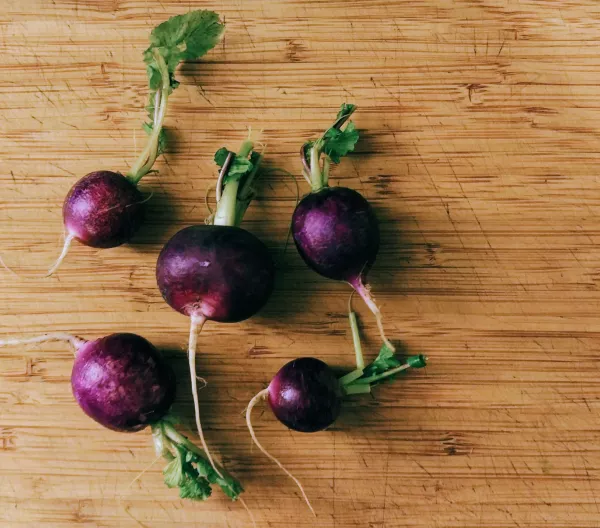Winter fruits in season: Don’t miss ‘em

AkuAku - stock.adobe.com.
These now-in-season winter fruits are ready to brighten up your next meal or snack. Most are rare finds at supermarkets in the spring and summer, so enjoy ‘em while it’s cold!
This article comes from Nutrition Action. We don't accept any paid advertising or corporate or government donations. Any products we recommend have been vetted by our staff and are not advertisements by the manufacturers. They’re just healthy foods we think you’d like to know about!
Click to jump to a fruit:
Satsuma

The slightly loose skin of a satsuma makes it a breeze to peel, but the snack-size mandarin’s perks go beyond ease. A sweet-tart satsuma tastes like you’ve cranked up the flavor on an everyday clementine. And the insides are either seedless or close to it. That makes it pricier, alas, but worth an occasional treat. To spot a satsuma, scan the supermarket for its signature green leaves, which will still be attached to the fruit. They’re in season from October to January.
Citrus recipes
Sumos

The uber-juicy, easy-to-peel Sumo is a super-sized hybrid of oranges, satsumas, and mandarins. Thanks to its softball size, each 150-calorie Sumo delivers a nice dose of fiber and potassium (10 percent of a day’s worth), and packs a 1½-day supply of vitamin C. Peak season starts in January and goes through April.
Cara Caras & blood oranges

Pop quiz: What’s an orange that’s not orange inside? One answer: a Cara Cara. The citrus fruit is seedless, juicy, and sweet-tart, with pink flesh from lycopene (a plant pigment also found in watermelons and tomatoes). Toss segments into grain sides like tabouli or quinoa pilaf for a pop of pink. Enjoy pink-fleshed Cara Cara or maroon blood oranges from December to May.
Orange recipes
Pomegranates

Pomegranates are sparkling fiber-rich gems. Pro tip: To stop the arils (seeds) from flying or spraying juice while you separate them from the inner white pith, cut your pomegranate into chunks, then submerge them in a large bowlful of water while you pluck away. The white stuff floats to the top while the edible seeds sink to the bottom.
That gives you arils galore to jazz up oats, yogurt, or your next recipe.
Pomegranate recipes
Meyer lemons

Why go for a wintertime Meyer lemon instead of an all-the-time lemon? Pleasantly sweeter and less acidic than regular lemons, Meyers are perfect for everything from sweet baked goods to savory dishes. Add their juice and zest to fish, lentils, salads, or chicken. Or squeeze some into your water or tea. To spot a Meyer, look for dark yellow or orange-ish skin that’s smoother and thinner than a regular lemon’s. Hello, winter sunshine!
Lemon recipes
Persimmons

For starters, it helps to know your persimmons. Acorn-shaped Hachiyas (right) taste astringent until they’re very ripe—that is, until they feel super soft to the touch. Save ’em for snacking. Use firmer, rounder Fuyus (left) for green salads.
Simple Persimmon Salad
Toss a sliced Fuyu with baby arugula or kale, toasted walnuts or pecans, and a vinaigrette of 1 Tbs. white balsamic or wine vinegar, ½ tsp. honey, ¼ tsp. salt, and 1 Tbs. extra-virgin olive oil. Add a sprinkle of feta or goat cheese, if you’d like.
Support CSPI today
As a nonprofit organization that takes no donations from industry or government, CSPI relies on the support of donors to continue our work in securing a safe, nutritious, and transparent food system. Every donation—no matter how small—helps CSPI continue improving food access, removing harmful additives, strengthening food safety, conducting and reviewing research, and reforming food labeling.
Please support CSPI today, and consider contributing monthly. Thank you.
Tags
Topics

Let's stay in touch
Get our (free) healthy tips
Our free Healthy Tips newsletter offers a peek at what Nutrition Action subscribers get—scrupulously researched advice about food of all kinds, staying healthy with diet and exercise, and more.

